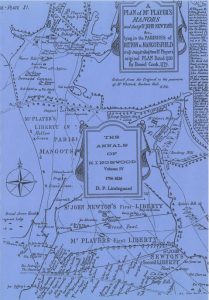The Annals of Kingswood Vol IV: 1796 – 1820

These were desperate years. At the start of this episode I quote the flippant remark of a Judge sitting at Gloucester. He said “I thought I had hanged the whole parish of Bitton long ago.”
Whether it was ‘Dick Boy’, ‘Scrammy-handed Jemmy’, the Caines brothers, those in the Chaplain’s Book from Ilchester Gaol among others, they all fell foul of ‘the Bloody Code’ of the 18th century. There were 21 categories for which capital punishment could be employed:
- High treason, including offences against the Protestant successionand the Protestant establishment
- Other offences against the State
- Offences against public order, including riotand destruction of flood defences and bridges
- Offences against the administration of justice
- Offences against public health
- Offences against public revenue, including smuggling
- Petty treasonand murder
- Stabbing, maiming and shooting at any person
- Rape, forcible abductionand other sexual offences
- Simple grand larcenyand allied offences
- Burglaryand allied offences
- Larceny from the person
- Larceny and embezzlementby servants, Post Officeemployees, clerks and other agents
- Blackmail
- Offences by bankrupts
- Forgeryof deeds, bonds, testaments, bills of exchange, stocks, stamps, banknotes, etc.
- Falsely personatinganother with intent to defraud
- Destroying ships to the prejudice of insurancecompanies
- Coinageoffences
- Malicious injuries to property, including arson
- Piracy
The Judgement of Death Act, 1823 made capital punishment discretionary for all crimes except treason and murder. Gradually by the middle of the 19th century the number of capital offences was reduced.
The country was at war against Napoleon. Bitton made preparations in case of invasion. At Stapleton Gaol the French POWs endured dire conditions. There is little of comfort here.
First published 1997
Click the link below to download:




